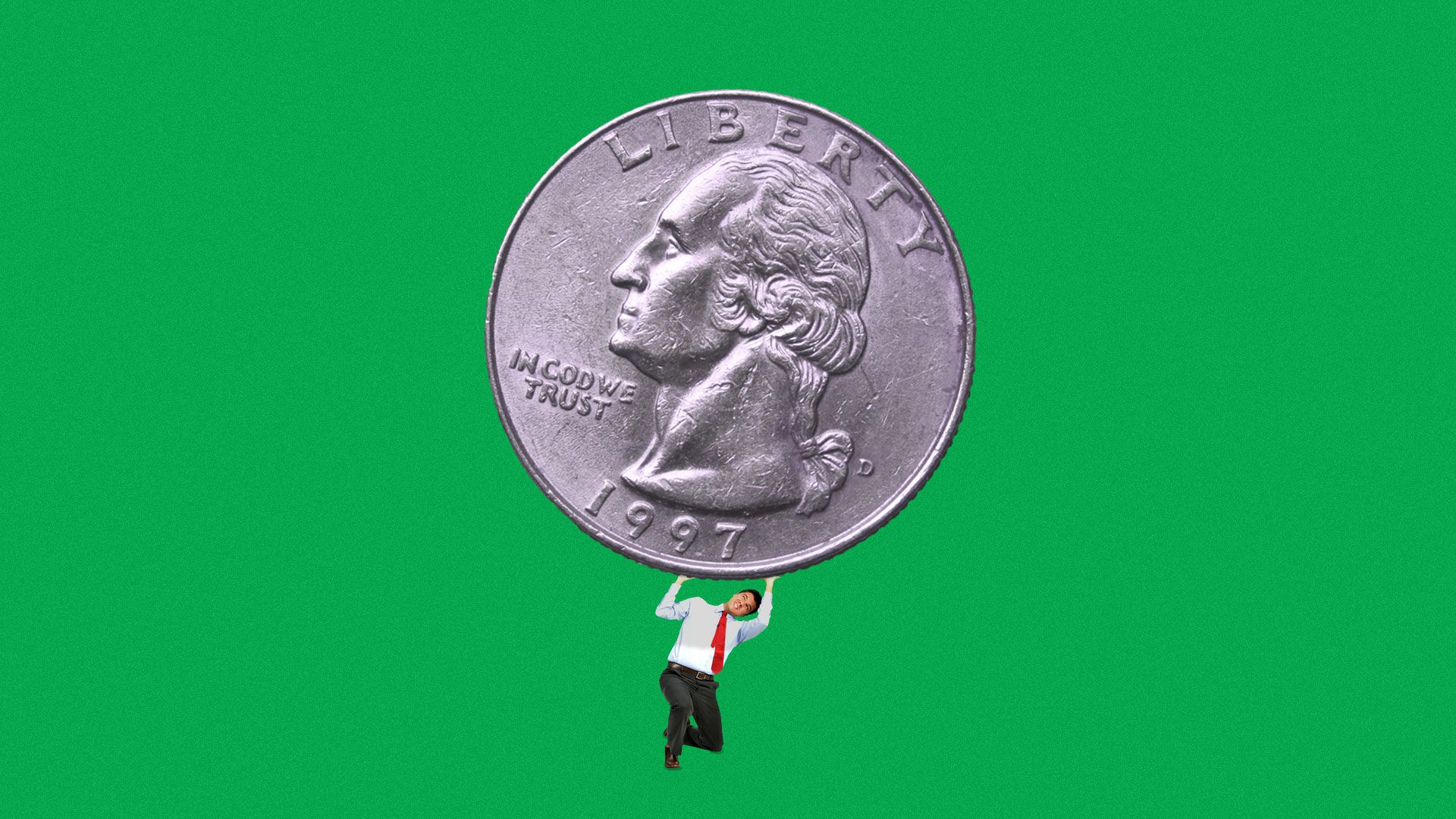Big retailers are pushing tariff costs on to smaller merchants
Add Axios as your preferred source to
see more of our stories on Google.

Illustration: Eniola Odetunde/Axios
Big retailers like Bed, Bath and Beyond, Target, and TJX Brands are refusing to accept tariff price increases from their brand suppliers, telling the companies they will have to either eat the tariff costs or find another buyer.
Why it matters: This forces the costs of President Trump's trade war with China down to smaller businesses that can hardly afford them, while the big companies keep the impact of tariffs at bay.
The hard line being taken by the bigger players could be enough to shutter smaller retailers. Without tariff relief or the ability to pass on the 10-25% price increase they face, some small businesses say they will likely have to close within a year or so.
The state of play: After the next round of tariffs — scheduled for Dec. 15 — is implemented, nearly every product traded between the U.S. and China will be affected.
- That's sure to put even more pressure on the smaller retailers, as bigger companies continue to leverage their size and influence to dodge price hikes for as long as possible.
What we're hearing: "The material cost is more than 50% of the product, so it’s a significant cost," Dan Digre, president of Misco (Minneapolis Speaker Co.), which his father founded in 1949, tells Axios. "You start taking out 10-15%, and it’s hard to be profitable."
- The head of another small retailer that supplies bigger chains — Surell Accessories of Troy, N.H. — tells Axios: "We’re just holding on until we can figure this out."
- "But this certainly isn’t a great situation for us. Another year or two and there’s no way we could survive this thing," says Darryl Meattey, founder and CEO of Surell, which sells fur hats, vests, scarves and mittens.
What we're not hearing: Representatives from Bed, Bath and Beyond, and TJX — which includes TJMaxx, Marshalls and HomeGoods — didn't return emails from Axios asking for comment.
- According to the Wall Street Journal: "Days before new tariffs went into force Sept. 1, Target sent a letter to suppliers saying that it 'will not accept any new cost increases related to tariffs on goods imported from China.'"
- Target CEO Brian Cornell told CNBC this week: “We’ve made sure we have worked with our vendors to try to offset some of those [tariff] costs.”
- Smaller suppliers tell Axios that Bed, Bath and Beyond and TJX have been refusing the tariff costs too.
The intrigue: Small business owners who spoke to Axios say business is strong — they've got lots of orders to fill and clients to serve, so they can't reduce their workforce or cut costs to offset the tariff expenses. They are simply treading water.
- Instead, they're putting off investments in technology, marketing and machinery and, in some cases, eating into cash reserves.
Where it stands: So far, the strong economy has helped buffer small businesses against the blunt impact of tariffs: The National Federation of Independent Business's monthly "Optimism Index," a bellwether of small business sentiment, rose in October, with 25% of respondents saying that finding qualified labor was their top complaint — more than those who cited taxes or regulations.
The bottom line: Despite mounting pressure from tit-for-tat tariffs, small retailers have managed to stay afloat. But questions linger over how long that can continue if tariffs persist — and there's no off-ramp for the trade war in sight.
Editor's note: This story was corrected to remove a reference to Burlington, which isn't a subsidiary of TJX.

